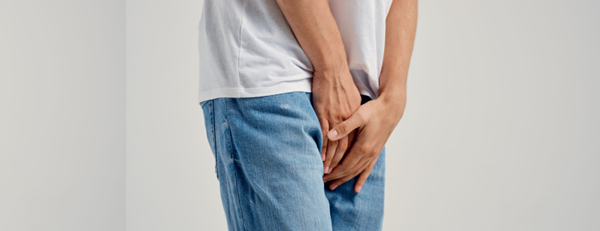
17 Dec Uterine Fibroids: Everything You Need to Know
Uterine Fibroids: Everything You Need to Know
By Island Hospital | Oct 24, 2025 5:57:45 PM
Uterine fibroids are non-cancerous growths of the uterus that often appear during childbearing years. Also called leiomyomas (lie-o-my-O-muhs) or myomas, uterine fibroids aren’t associated with an increased risk of uterine cancer and almost never develop into cancer.
Fibroids range in size from seedlings, undetectable by the human eye, to bulky masses that can distort and enlarge the uterus. You can have a single fibroid or multiple ones. In extreme cases, multiple fibroids can expand the uterus so much that it reaches the rib cage.
Many women have uterine fibroids sometime during their lives. But most women don’t know they have uterine fibroids because they often cause no symptoms. It may be discovered incidentally during a pelvic exam or prenatal ultrasound.
In this article, we will explore everything you need to know about uterine fibroids, including the symptoms, treatment options, prevention steps, and risks if left untreated.
Symptoms
Your symptoms will depend on the location and size of the tumour(s) and how many tumours you have.
If your tumour is very small, or if you are going through menopause, you may not have any symptoms. Fibroids may shrink during and after menopause. Symptoms of fibroids may include:
- Heavy bleeding between or during your periods, that includes blood clots
- Pain in the pelvis and/or lower back
- Pain during intercourse
- Increased Menstrual cramping
- Longer menstruation than usual
- Increased urination
- Pressure/fullness in your lower abdomen
- Swelling/enlargement of the abdomen
Note: Fibroids are different from ovarian cysts, which form on the ovaries. Although both may lead to pelvic pain and some similar symptoms, they involve different areas of the reproductive system and need distinct treatment approaches.
Want to know more about ovarian cysts? Learn all about the symptoms, types, prevention and treatment in our complete guide on ovarian cysts.
Treatment
There’s no single best approach to uterine fibroid treatment.
Watchful Waiting
No signs or symptoms, or only mildly annoying signs and symptoms that are bearable. If that’s the case, watchful waiting could be the better option.
Fibroids Aren’t Cancerous
They rarely interfere with pregnancy. They usually grow slowly — or not at all — and tend to shrink after menopause, when levels of reproductive hormones drop.
Medications
Medications for uterine fibroids target hormones that regulate your menstrual cycle, treating symptoms such as heavy menstrual bleeding and pelvic pressure. They don’t eliminate fibroids, but may shrink them.
Types of Medications
- Gonadotropin-releasing hormone (Gn-RH) agonists
Medications called Gn-RH agonists treat fibroids by blocking the production of estrogen and progesterone, putting you into a temporary postmenopausal state. As a result, menstruation stops, fibroids shrink, and anemia often improves. Usually temporary relief, and often used for pre-operative shrinking.
- Progestin-releasing intrauterine device (IUD)
A progestin-releasing IUD can relieve heavy bleeding caused by fibroids.A progestin-releasing IUD provides symptom relief only and doesn’t shrink fibroids or make them disappear. It also prevents pregnancy.
- Tranexamic acid
This non-hormonal medication is taken to ease heavy menstrual periods. It’s taken only on heavy bleeding days.
- Other medications
Oral contraceptives or progestins can help control menstrual bleeding, but they don’t reduce fibroid size. - Esmya
An oral medication that is used to shrink fibroids. It will need at least two cycles of three months each. It is the first oral medication primarily for the treatment of fibroids.
Types of traditional surgical procedures
- Abdominal myomectomy
If you have multiple fibroids, very large fibroids or very deep fibroids, your doctor may use an open abdominal surgical procedure to remove the fibroids. Many women who are told that hysterectomy is their only option can have an abdominal myomectomy instead. However, scarring after surgery can affect future fertility.
- Hysterectomy
This surgery (the removal of the uterus) remains the only proven permanent solution for uterine fibroids. But hysterectomy is a major surgery.
Note: Always seek advice from medical professionals to ensure the diagnosis and treatment plan are right for you and your unique health needs.
Prevention
There is no known treatment that prevents uterine fibroids. Getting regular exercise may help.
- Preventing fibroids from coming back after treatment
- Being on the oral contraceptive pill long-term
Risks – If Left Untreated
- If left untreated, fibroids can continue to grow, both in size and number
- The symptoms may become worse
- Heavy bleeding will become heavier, and it may be accompanied by severe cramping
- Pain will increase
- As the fibroids grow, the abdomen can swell
- They can put additional pressure on the bladder, resulting in incontinence or frequent urination
Get Help for Uterine Fibroids Today!
At Island Hospital, we offer a wide range of obstetric and gynecologic clinical services tailored to your needs.
Whether you are experiencing symptoms like pelvic pain, heavy periods, or abdominal swelling, or you have been diagnosed during a routine check-up, our specialists will guide you through every step of your care.
Our commitment to excellence has earned us local and worldwide recognition:
- A finalist for Malaysia’s Flagship Medical Tourism Hospital Programme
- A place on Newsweek’s lists of World’s Best Hospitals 2025
Don’t let uterine fibroids affect your daily life. Book an appointment with our specialists today and take the first step toward better health!
Take Proactive Action Today – Get a Comprehensive Health Screening

We’re offering our Comprehensive Plus Package (Female) at only RM2,799 – giving you a complete head-to-toe health assessment for peace of mind.
Our package includes vital health screenings, such as Gynaecological Assessment, Radiological Screening, Cardiovascular Assessment, Urine Assessments, and more.
What’s Included in Your Screening Experience:
✔ Physical examination
✔ Complete medical report
✔ Consultation by Health Screening Physician/Specialist
✔ Choice of light refreshments
✔ Exclusive Island Hospital woven bag








